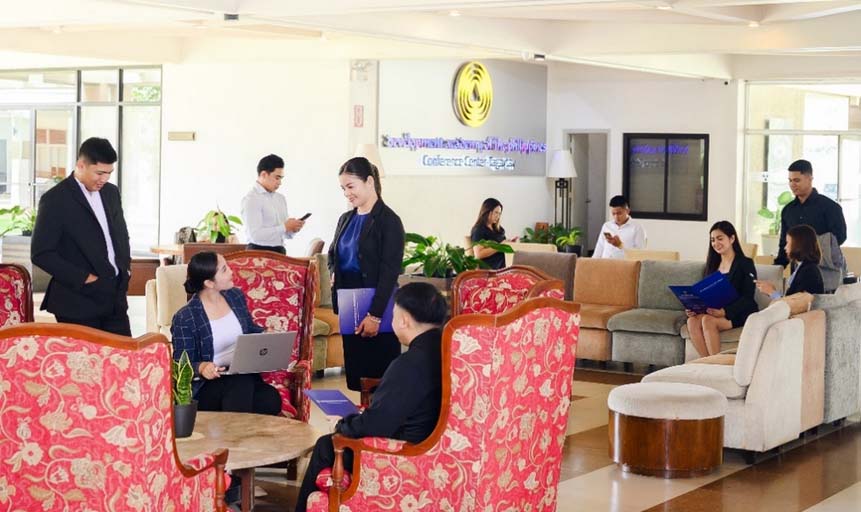The Development Academy of the Philippines (DAP), as the focal organization for the Asian Productivity Organization (APO) Center of Excellence on Public-Sector Productivity, in collaboration with the APO Secretariat, conducted a two-day hybrid learning session titled “Citizen-Centered AI Adoption in the Public Sector: From Strategy to System Blueprints for Smarter Public Services” on May 14-15, 2025. The session was held onsite at the DAP Building in Pasig City and online via Zoom.

The event brought together around 40 onsite participants and over 500 online attendees from various public sector organizations across the Philippines, reflecting the growing interest in and momentum toward artificial intelligence (AI) adoption within the Philippine public sector.

In his opening remarks, Mr. Arsyoni Buana, Head of the In-Country Programs Division of the APO, underscored the role of AI as a tool for enhancing productivity—not as a replacement for the human workforce. He emphasized that AI should be viewed not as an isolated technology but as part of an integrated system that connects policy, capacity, technology, and ethics—with people at the center. He also highlighted the APO’s Vision 2025, which aims to build institutional and human capacity and promote ethical, inclusive AI policies through international cooperation.

The learning session was led by resource speaker Dr. Akira Murata, Associate Professor of Economics at Chiba Keizai University. It aimed to provide participants with foundational knowledge of AI applications in various government sectors.
Day 1 focused on “Building the Government AI Architecture” and featured in-depth discussions on AI fundamentals and models. Participants received comprehensive demonstrations on AI tools such as ChatGPT-4o, Notebook LM, and Google Colab.
Day 2 covered “AI Strategies for Citizen-Centered Service Transformation” and explored the practical applications of AI in key public services, including transportation, healthcare, and education. Through the use of open-source and no-code AI tools, participants engaged in hands-on exercises that demonstrated the accessibility and ease of use of these technologies—regardless of their technical backgrounds.

The learning session affirms the DAP and APO’s shared commitment to building institutional capacity for citizen-centered, digitally enabled public service delivery.
Watch the sessions through this link: Learning Session on Citizen-Centered AI Adoption

